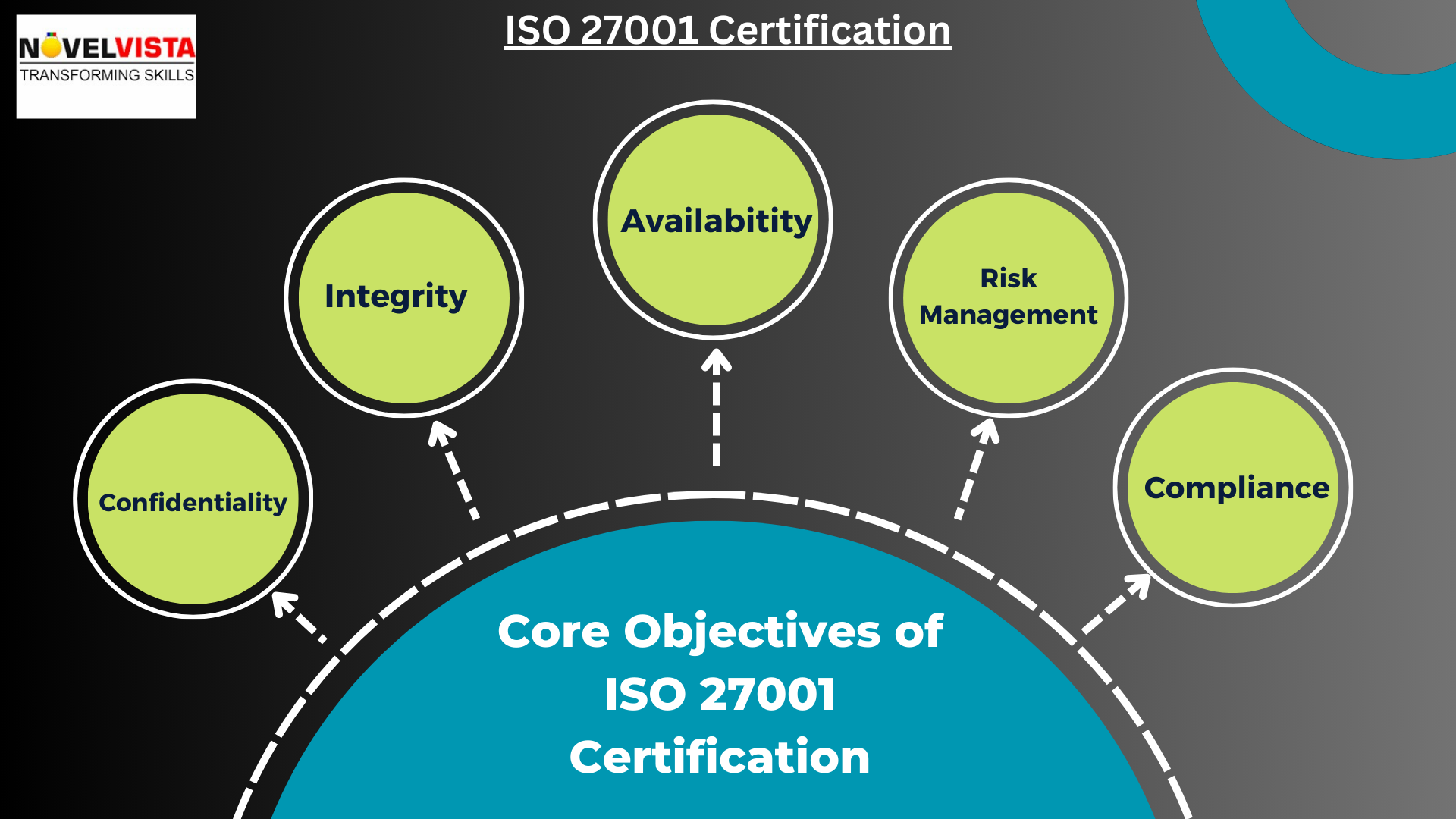
ISO 27001 is a global standard for managing information security. It helps organizations protect their data, reduce risks, and build trust with customers and stakeholders. This certification shows that a company is serious about keeping information safe and secure.
Achieving ISO 27001 certification demonstrates an organization’s commitment to information security and provides assurance to stakeholders that adequate controls are in place to safeguard their data. In this article, we will explore the core objectives of ISO 27001 Certification and its significance in today’s digital landscape.
1. Creating a Strong Information Security System
The main goal of ISO 27001 is to create a solid system for managing information security, known as an Information Security Management System (ISMS). This system brings together people, processes, and technology to protect organizations sensitive data. The certification makes sure that organizations have a clear plan to manage and protect information continuously, reducing the chances of data breaches, lower cyber-attacks, or other security issues.
2. Improving Risk Management
ISO 27001 Course focuses on identifying and managing risks related to information security. Organizations must find potential risks, understand their impact, and put measures in place to reduce them. This approach means being prepared for any potential threats and reducing their impact if they occur.
3. Protecting Sensitive Information
ISO 27001 aims to ensure that sensitive information is always safe. This involves three key aspects:
- Confidentiality: Keeping information accessible only to those who have rights to that information.
- Integrity: ISO 27001 Ensues that the information is accurate and not altered without authorization.
- Availability: Making sure information is available to authorized users whenever needed. By focusing on these principles, ISO 27001 helps organizations protect their data from both internal and external threats and cyber-attacks.
4.Compliance with Laws and Regulations
ISO 27001 also helps organizations comply with various legal and regulatory requirements related to data protection. Different industries and countries have specific rules for how data should be handled, such as the GDPR in Europe or HIPAA in the United States.
ISO 27001 provides a framework that aligns with these rules, helping organizations avoid fines, legal issues, and damage to their reputation.
5. Building Trust with Customers and Partners
ISO 27001 certification helps organizations build trust with customers, partners, and other stakeholders. By demonstrating a commitment to information security, organizations show that they take data protection seriously. This can be a significant advantage, especially in industries where data security is critical, like finance, healthcare, and e-commerce.
6. Opening Up new Business Opportunities
Achieving ISO 27001 certification can help organizations gain new business opportunities. Many companies and government bodies require their suppliers or partners to have this certification. It can also make an organization more attractive to potential clients and investors by showing a commitment to the best practices in information security.
7. Promoting a Security-Conscious Culture
ISO 27001 encourages a culture of security awareness within an organization. It involves training employees about security practices and helping them understand their role in protecting information. This awareness can reduce the risk of human errors that could lead to security breaches.
8. Encouraging Continuous Improvement
ISO 27001 promotes a cycle of continuous improvement in information security practices. Organizations must regularly review their security measures, identify any weaknesses, and make necessary changes to stay ahead of new threats. This ongoing process helps organizations remain strong and responsive to new challenges in the ever-changing digital landscape.
9. Reducing Costs Related to Security
Data breaches and other security incidents can be very costly, both financially and in terms of reputation. ISO 27001 helps organizations avoid these costs by minimizing the risk of security breaches. By following the standard’s guidelines, organizations can prevent incidents or reduce their impact, saving money and protecting their brand.
10. Aligning Security with Business Goals
ISO 27001 ensures that information security is aligned with an organization’s overall business goals. It integrates security planning into the broader business strategy, making sure that protecting information is a key part of the organization’s success. This helps companies manage risks effectively and make informed decisions.
Conclusion
ISO 27001 certification is an important step for organizations that want to protect their data, build trust, and create new opportunities. By meeting this standard, organizations show they are committed to keeping information safe, complying with regulations, and continuously improving their security practices. As technology and threats evolve, ISO 27001 provides a framework that helps organizations stay secure and resilient.








